CC 405 - PM Fundamentals
This course introduces students to the framework information of project management. The terminology, processes, and knowledge areas of project management are defined to establish a basis upon which participants can develop and grow their project management knowledge, skills and attitudes.
CC 410 - PM Budgets & Scheduling
The purpose of this course is to provide guidance on resource cost estimating, budget baselining, and displaying budget information using various tools. Schedule management involves planning and controlling the resources and timelines of a project. Planning the schedule of the project includes estimating and allocating the resources, establishing the order of activities and interdependencies, then applying the activities to a calendar and leveling the resource allocations. This course is designed to help participants plan and manage the schedule of a project using good project management practices.
CC 415 - PM Leadership
Project management involves technical skills like scheduling, budgeting, scope definition and quality management, but more importantly, effective management requires the project manager to possess behavioural skills to influence others. It addresses such diverse, but equally important, roles of project leader as visionary, strategic manager and ethical leader. It is a hands-on guide detailing the specific steps you will need to follow in creating a project vision, reaching all project stakeholders and selling that vision.
CC 420 - PM Risk Management
Project risk management is a critical aspect of successful project management. The process of risk management requires a proactive approach to plan, monitor and control the risks and achieve the objectives of the project successfully. This course provides insight and tools to improve project risk management and increase the probability of project success.
CC 101 - Accounting 1
This course introduces financial accounting concepts. Students learn the double-entry accounting system, including the preparation of financial statements, closing entries, internal controls for cash and payroll accounting.
CC 102 - Accounting 2
This course is a continuation of Accounting 1 and offers further insight into the field of accounting and how it serves the needs of the business community. We take an in-depth look at some specific items on the balance sheet, accounts receivable, inventory, capital assets, and current liabilities as well as the use of special journals, subsidiary ledgers, and end with an introduction to corporations. Applications of the principles learned will be applied to the preparation of financial statements, and in-depth problems, which emphasize the importance of accounting in decision making.
CC 100 - Business Math
This is a fundamental course in business mathematics. Topics covered include mathematics of merchandising, simple interest, compound interest, annuities, loan amortization, and cost-volume-profit analysis. This course is designed to encourage students to develop mathematical skills and abilities by applying them to common business situations. Regardless of his or her prior math experiences, this course will enhance the learner's ability to use mathematics to solve problems and make sound decisions from both a career and personal perspective.
CC 105 - Business Enterprise
Students learn the challenges of starting a new business. Topics include strategic approaches to small business, small business startups, funding sources, market feasibility, buying a small business and franchising. Students begin to develop skills in financial management, market management, operations, human resource management and general small business management. Preparation of a business plan is a key experiential exercise.
CC 130 - Operations Management 1
This course introduces the learner to the operations management profession. An operations manager is concerned with the planning, decision-making and actions required to produce and deliver the organization’s goods and/or services, as opposed to marketing its products, managing its human resources or accounting for its finances. Operations managers work in virtually all enterprises – manufacturing, service, government, for-profit and not-for-profit. Operations managers work in many parts of the organization, including Purchasing and Supply Chain, Inventory Management, Quality Management, Scheduling, Transportation and Logistics, and Front-line Supervision to name a few.
CC 131 - Operations Management 2
This second-level course continues the student’s introduction to the operations management profession and the wide variety of career paths that operations managers can pursue. Participants will continue to develop their awareness of the varied and complex roles that operations managers play in all enterprises – manufacturing, service, government, for-profit and not-for-profit. This course focuses on the analysis and decision-making that operations managers engage in as they strive for efficient, competitive production and delivery of the enterprise’s goods or services. Areas of study include process strategy, capacity planning, design of efficient facilities, and the various levels of planning needed to ensure that an organization can produce and deliver goods and services according to customer demands.
CC 141 - Marketing 1
Designed to provide the student with an overview of the marketing concept and how it can be applied to any type of organization or service. Students also learn how key marketing concepts, principles, and theories can help marketers make effective decisions. Specifically the knowledge and understanding which are needed to assess product, price, promotion and distribution options, and to make marketing mix recommendations for specific target markets.
CC 230 - Human Resource Management 1
This course deals mainly with the factors that affect the overall workplace atmosphere. Topics include the strategic importance of human resource management, demographic challenges, job analysis and design, human resources planning, recruitment and selection, training and orientation, government and legal challenges, and problem-solving techniques.
CC 231 - Human Resource Management 2
This advanced course gives students an appreciation of the technical aspects of human resources. Topics include performance appraisal, compensation management, financial incentives, employee benefits and services, employee relations practices, the union/management framework, and health and safety. Students who successfully complete this course and HUMAN RESOURCE MANAGEMENT I (HRM 1200) with an average B standing receive a full credit toward the Human Resources Administration course from the Human Resources Professionals Association of Ontario.
CC 120 - Economics
This introductory course emphasizes macroeconomics. Topics include economic principles such as opportunity cost; the law of diminishing returns; market price setting; price elasticity; and government price controls. Students also learn about unemployment, inflation, gross domestic product, money, banking and stabilization policies.
CC 140 - Communications
This introductory communications course emphasizes the development of reading, writing, listening and speaking business communication skills at a college level. Students write for various purposes and audiences and deliver short presentations to small groups. Students research, analyze, summarize and document information. Students self and peer evaluate written documents and oral presentations. Through reading, media response and discussion exercises, students improve their communication skills. Communicating in diverse teams and across cultures is emphasized.
PPD 100 - Success in the Classroom
This is a first semester course that provides students with the tools they need for academic success. The course offers skills to help students with the transition to post-secondary education, to help them learn how to be a successful student and to make the most of their learning experience.
PPD 150 - Success in the Workplace
This course focuses on preparing students for the Canadian workplace, either in their future career or the work-integrated learning component of their Canadian College program. Students will examine their own career goals as well as topics such as safety, time management, and critical thinking, in order to help them transition into and succeed within a Canadian work environment.
PPD 200 - Business Computers 1
This course is the first part of an introduction to the computer skills required in business today. It provides the student with an introduction to computer file management and Microsoft Word.
PPD 250 - Business Computers 2
This course will introduce and further develop Microsoft Excel skills that the student will need use in subsequent semesters and in the business world. Upon completion of the course, students will be able to prepare tables and graphs, use input fields, understand and be able to use Microsoft Excel insert functions and specialized functions. These functions include goal seeking, solver and data analysis.
PPD 300 - Managing Stress
This course explores practical strategies for managing stress in academic, personal, and professional life. Topics include mindfulness, time management, relaxation techniques, and emotional regulation. Students will develop skills to recognize stress triggers, build resilience, and enhance well-being, fostering a balanced approach to handling everyday pressures and challenges.
PPD 350 - Managing Personal Finances
This course provides foundational knowledge and practical skills for managing personal finances. Topics include budgeting, saving, investing, debt management, and financial planning. Students will learn how to make informed financial decisions, set financial goals, and build long-term wealth, preparing them for financial independence and stability.
PPD 400 - Canadian Culture & Diversity
This course explores the rich and diverse cultural landscape of Canada, examining its history, diversity and societal values. Topics include Indigenous cultures, French and English heritage, multiculturalism, and the role of culture in shaping national identity. Students will analyze how cultural expressions reflect and influence Canadian society.
PPD 450 - Career Development
This course provides students with tools and strategies necessary for effective career development. Topics include self-assessment, career exploration, resume and cover letter writing, job search strategies, and interview techniques. Students will learn to identify their strengths and interests, research potential career paths, and create actionable plans for professional growth. By the end of the course, students will have a clear roadmap for launching and advancing their careers, equipped with the confidence and skills to succeed in a competitive job market.
CC 142 - Marketing 2
This course focuses on the marketing mix, a collection of variables that marketers control and manipulate in changing market conditions. Once marketing objectives have been developed, companies must decide on specific pricing, products/services, distribution and marketing communication strategies. Students study each of these four marketing mix variables in depth and in the context of a marketing plan.
CC 501 - Business Law
This course presents the basic legal principles of carrying out international business. It covers the legal implications of international business activities, discusses the legal aspects related to intellectual property, contract liability and responsibility, competition and antitrust laws, public trade law and legal issues related to E-commerce in international business. This is course that will bridge the gap between government systems, civil liability and profits.
SMM 100 - Introduction to Digital Marketing
This foundational course is designed to introduce students to digital marketing principles and tools, and how to leverage these tools in order to engage customers and create growth business growth.
CC 502 - Speaking and Presenting
Speaking and presenting will help students in every phase of their careers from the first interview when they have to respond to questions, to the middle years when they have to represent their companies on the telephone or in face to face interactions with clients, to later in their careers when they have to make speeches in front of hundreds of people. The purpose of this course is to help the student sharpen presentation skills, both informal and formal. It will also teach techniques to build self-confidence when placed in front of a crowd.
COMM210 - Intercultural Communication
This course prepares students to meet the challenges of intercultural business communication. Success in international business requires understanding and sensitivity in order to navigate the various differences one will encounter in a multi-cultural setting. From contrasting values and etiquette, to differences in language and non-verbal communication, students will develop the awareness and skills to transcend such differences within a multicultural environment, both international and domestic. Through assignments, readings and in-class discussion, students will gain the practical knowledge and skills for a variety of communication-based tasks, from cross-cultural negotiation to effective business correspondence.
PROJ 425 CAPM Exam Preparation
This course focuses on exam content from the Guide to the Project Management Body of Knowledge-Sixth Edition (PMBOK® Guide). Students will be prepared to write the Project Management Institute (PMI) Certified Associate in Project Management (CAPM®) certification exam and provide PMBOK® Guide review for the Project Management Professional (PMP®) certification exam.
PROJ425 will provide a comprehensive review of the process groups and knowledge areas including a review of the key concepts, terminology, and principles. Students will also learn about the certification process and exam format, along with practice exam questions, a simulated exam, and practical test-taking techniques.






